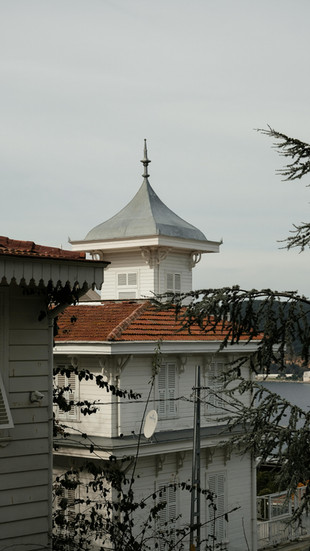Istanbul
- Dr.N.Haluk Belen
- Jan 27
- 2 min read
The Eternal City Where East Meets West
Istanbul, straddling two continents—Europe and Asia—is a city that has stood at the crossroads of history, culture, and trade for over 2,500 years. Originally founded around 660 BCE as Byzantium, the city grew into a significant trade hub due to its strategic location on the Bosphorus Strait, connecting the Black Sea to the Sea of Marmara.
In 330 CE, Emperor Constantine the Great renamed the city Constantinople and declared it the capital of the Roman Empire. Under Byzantine rule, Constantinople became a center of Christianity, housing architectural marvels like the Hagia Sophia, originally built as a cathedral in 537 CE. The city was renowned for its wealth, grandeur, and influence, standing as a beacon of the Byzantine Empire until it fell to the Ottoman Turks in 1453.
The Ottomans, led by Sultan Mehmed II, transformed Constantinople into Istanbul, the heart of their empire and a center of Islamic culture. Iconic landmarks from this era include the Topkapi Palace, the administrative center of the empire, the Blue Mosque (Sultan Ahmed Mosque), famous for its stunning blue tiles, and the Grand Bazaar, one of the world’s oldest and largest covered markets. Istanbul thrived as a melting pot of cultures, with influences from Europe, the Middle East, and Asia shaping its identity.
Modern Istanbul retains this rich historical legacy while embracing its role as Turkey’s cultural and economic capital. Its unique geography allows visitors to explore the contrasts of the city: the bustling European side with landmarks like Taksim Square and Istiklal Avenue, and the more traditional Asian side, known for its charming neighborhoods like Kadıköy and Üsküdar.
Istanbul is a tourist paradise, offering something for everyone. Visitors can:
• Explore Historic Sites: The Hagia Sophia, now a mosque and museum; the Basilica Cistern; and the Chora Church with its stunning mosaics.
• Cruise the Bosphorus: Enjoy panoramic views of the city’s skyline, historic mansions, and iconic bridges connecting two continents.
• Shop and Savor: Experience the vibrant Grand Bazaar and Spice Bazaar or enjoy Turkish delights and authentic cuisine at traditional restaurants.
• Discover Modern Attractions: Contemporary museums like Istanbul Modern, the luxurious Galataport, and vibrant nightlife in neighborhoods like Beyoğlu.
Istanbul’s annual festivals, such as the Istanbul Biennial, Film Festival, and Tulip Festival, add to its cultural vibrancy. The city is also a culinary haven, offering everything from street food favorites like simit and döner to upscale dining experiences.
Why Visit Istanbul?
Istanbul is a city like no other, where ancient history and modernity coexist seamlessly. Whether walking through its historic streets, admiring breathtaking architecture, or enjoying its vibrant arts and dining scene, Istanbul offers an unforgettable journey into the heart of a city that has shaped and been shaped by civilizations across millennia.





































Comments